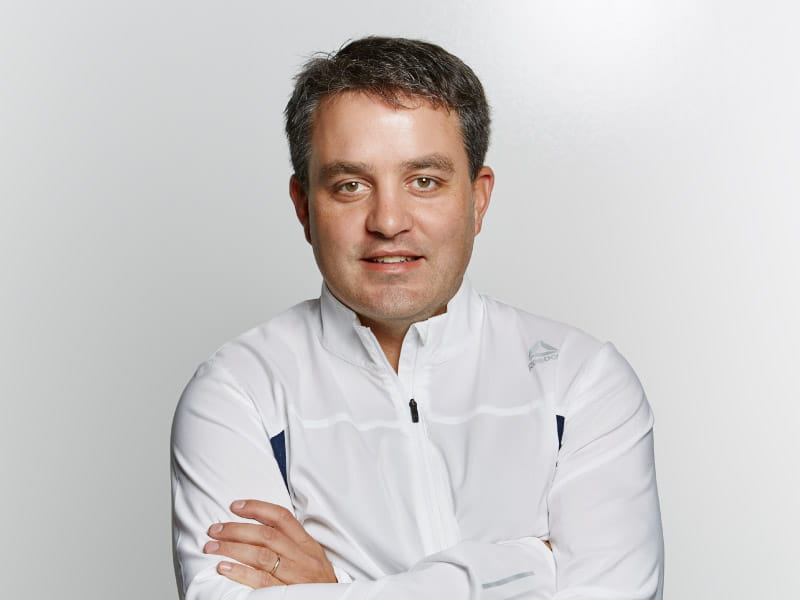Fit and healthy at 45, he looked into a mild symptom. It might have saved his life.
By Emily Halnon, American Heart Association News

Scott Daley started feeling tingling sensations in his arm while playing soccer with his recreation team.
At first, he wasn't that worried about it. After all, as his wife, Brooke Daley, said, "He was always coming home injured from soccer."
But when the tingling kept happening, Scott knew he should get it checked out because he was concerned it might have something to do with his heart.
Scott was 45 at the time and incredibly active. He regularly played soccer and worked out five days a week. As the vice president of global footwear for Reebok, he took full advantage of the company's robust fitness facilities in Boston.
Yet he also had a history of heart issues in his family, and the threat of developing his own had always lingered in his mind. His father had a heart attack at the age of 40, which he survived thanks to an emergency triple bypass surgery. And his uncle passed away from a heart attack in his 40s.
"I've been playing sports for such a long time, I knew the tingling wasn't some run-of-the-mill cramp or pulled muscle," he said. "I'd always been aware that there was a very real possibility that I'd have my own heart issue someday and that sometimes hereditary issues can override everything else you do to stay healthy."
Scott went in to see his doctor, who was extremely familiar with the Daley family's heart history since he'd also treated Scott's dad and brother. As soon as Scott brought up his tingling sensation, his doctor put him through several tests to see if something was going on with his heart.
Indeed, it was something quite serious: a significant blockage in his left anterior descending artery, which supplies blood to the heart. If left untreated, it can cause a fatal heart attack.
Scott underwent a quadruple bypass on Dec. 31, 2020, clearing the blockage and thus allowing healthier blood flow in and out of his heart. Because of the timing during the COVID-19 pandemic, Scott's family couldn't visit him in the hospital for the entire two-and-a-half-week stay.
"It was so hard to not see him," Brooke said. "But his surgeon was amazing and called me right after the procedure to tell me, 'His heart is pumping better than ever.'"
Scott's doctor said his family history was the primary cause of his heart issue, but the situation wasn't helped by Scott's high stress load – and his increased wine consumption during the pandemic. On the other side of his surgery, Scott has worked hard to recover, including lifestyle changes. The biggest is managing his stress. He's worked to reduce the number of triggers in his life and to improve the way he handles them.
"I don't want more headaches," he said.
He walks about 8 miles each day, savoring the low-impact exercise and the stress-reducing benefits. He also bikes and continues to play soccer with his rec team.
Scott prioritizes sleep and is conscious of his dietary choices. He eats less red meat and plenty of fruits and vegetables. And he checks in with his cardiologist on a regular basis to make sure his heart is in good shape.
He's also become involved in promoting heart health in his community. He chaired the American Heart Association's Boston Heart Walk in 2024 and helped Reebok launch a multiyear campaign to contribute some of the proceeds from its walking shoe line to the nonprofit.
Scott is in a much better place after catching his heart issue and getting the surgery he needed, but he knows family history isn't something that goes away. His son, who was 12 at the time of Scott's surgery, has experienced a lot of anxiety from watching his father navigate such a serious health scare – and knowing he might have to do the same.
"Yes, this does run in the family," Brooke said, "but we know about it, we talk about it, and we keep going to the doctor. So, if this happens for him, they will catch it before it becomes a serious problem, just like they did for his dad."
Stories From the Heart chronicles the inspiring journeys of heart disease and stroke survivors, caregivers and advocates.





